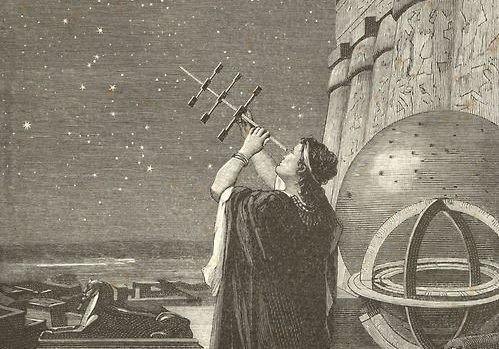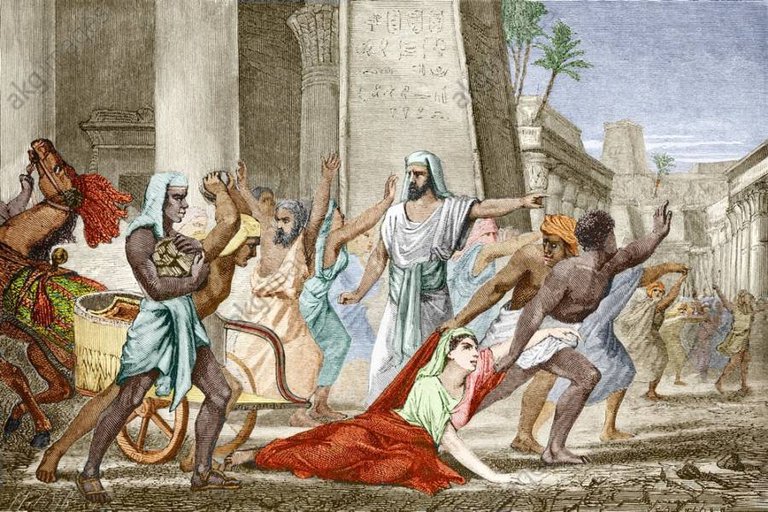

Hypatia is considered one of the most prominent female philosophers, she was also a mathematician and an astronomer who lived in Alexandria, Egypt, then part of the Eastern Roman Empire.
She was the daughter of Theon of Alexandria, a notable philosopher and mathematician who made sure his daughter received the best education possible, focusing on the cultivation of the mind and the body. She had many great teachers of which she learned the arts of science, philosophy, mathematics, astronomy and music. Later on, she dedicated to teaching herself.

After being influenced by great minds like Plotinus, Diophantus and Aristotle, se established herself as head of the Neoplatonic school of Philosoph in Alexandria, by 400 AD.
In a time in which women didn’t have true access to knowledge, Hypatia opened her way through the path of knowledge, science and philosophy and acquired public recognition. Unlike the other women of her time, Hypatia could move and speak freely among the men.
She collaborated on Theon’s commentary of Book III of Ptolemy’s Almagest. In the true fashion of the day, she was also an expert in Neoplatonic teachings, believing that everything emanates from the One.

Pupils traveled from all over to learn from Hypathia, who was known for her eloquence, beauty, and intelligence. She is described by all commentators as a charismatic teacher, and soon she became a symbol of knowledge and science that the first Christians associated with paganism.
Paganism is a term first used in the fourth century by early Christians for populations of the Roman Empire who practiced polytheism, which is the worship or belief in multiple deities. In contrast, monotheism refers to the worship or belief of one deity, f.e: Christianism. Pagan and paganism were pejorative terms for the same polytheistic group, implying its inferiority, the term presumed a belief in false god(s).
Because of Hypathia's prominence she stood out as a leading pagan during a time when Alexandria was wracked with tensions between pagans and Christians.
However, among the pupils who she taught in Alexandria there were many prominent Christians. One of the most famous is Synesius of Cyrene who was later to become the Bishop of Ptolemais. Many of the letters that Synesius wrote to Hypatia have been preserved and we see someone who was filled with admiration and reverence for Hypatia's learning and scientific abilities.
Those were hard times for pagans, because Christianism was becoming dominant in Alexandria (at the time under Roman rule) and all those who wouldn’t convert to Christianism and reject their former religion were persecuted.
Hypatia refused to betray her ideas and convert to christianism, for which she was accused of conspiracy against the Christian leader of Alexandria.
In AD 412, Cyril had become a patriarch of Alexandria, and Hypathia's closeness with Orestes, the city's pagan prefect, made her the target of a mob of Cyril's followers, who in AD 415 dragged her naked through the streets of Alexandria, pelted her with oyster shells and other debris, and burned her body.

Hypatia's death shocked the empire and transformed her into a "martyr for philosophy", leading future Neoplatonists such as Damascius to become increasingly fervent in their opposition to Christianity. Some sources affirm that Hypatia's death had nothing to do with the Christian feud against Pagans, and that instead was the result of the time's occasional eruptions of violence.
There is no evidence left of Hypatia’s original mathematical and philosophical research, only some titles and a few references to it. Although Hypathia's writings have been destroyed, letters written by her most famous pupil, Synesius of Cyrene (later the bishop of Prolemais), indicate Hypathia’s special interest in astronomy. In these letters, he asks her advice on the construction of an astrolabe and a hydroscope.
Do you think we should be learning more about Hypatia in school?

Consulted sources:
The Herstory of Hypatia
Hypatia on Wikipedia
Paganism on Wikipedia
Polytheism on Wikipedia
Biography of Hypathia
Hypatia of Alexandria
Hypatia
Image sources:
Hypatia's portrait
Hypatia as an astronomer
Illustrated portrait
The Death of Hypatia
Thanks for reading.
Interesting Hypatia's story, almost never written about women who have left good fruits to the sciences.
If I believe, we should learn more about it.
In the last 5 years or so that has been changing for good :) hopefully with time we will all learn more about relevant women not only in sciences but also in other fields.
100SP 200SP 300SP 400SP 500SP 750SP 1000SP 2000SP 3000SP 4000SP 5000SP 10,000SP 25,000SP
I'll be honest, it's the first time I've heard about it. There should be more information about this type of women in the historical information media.